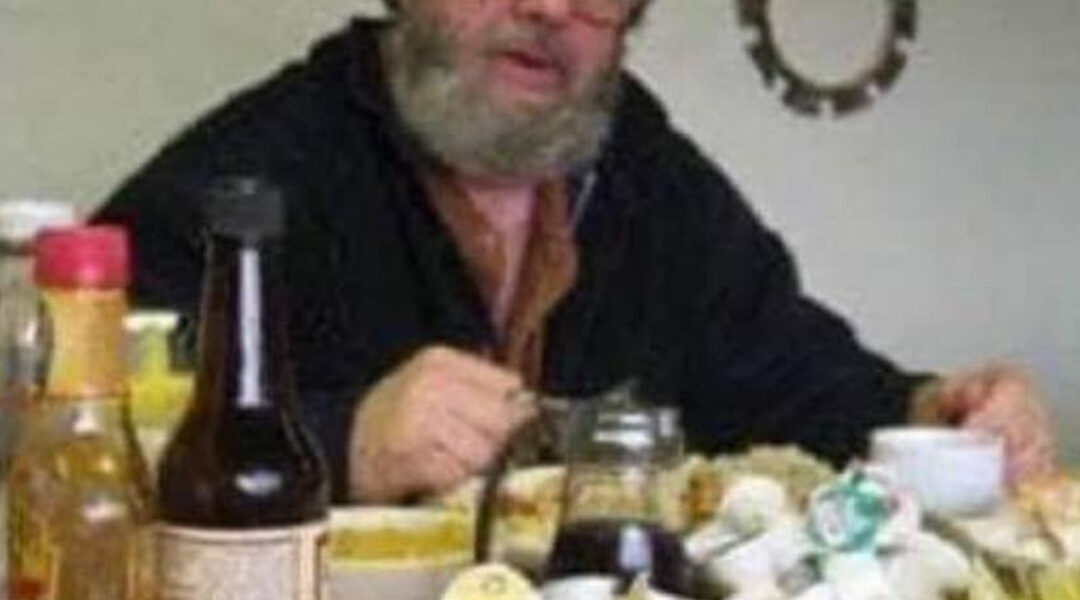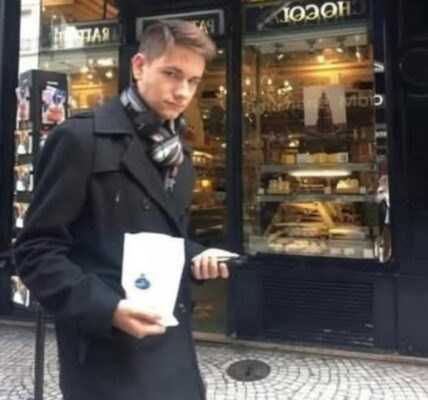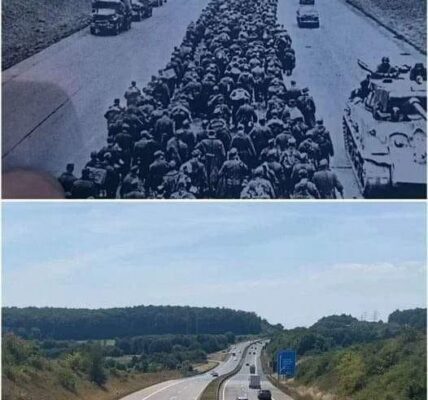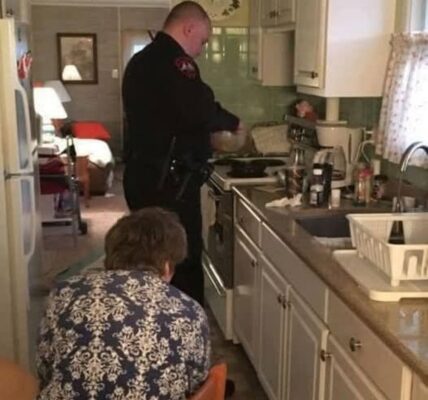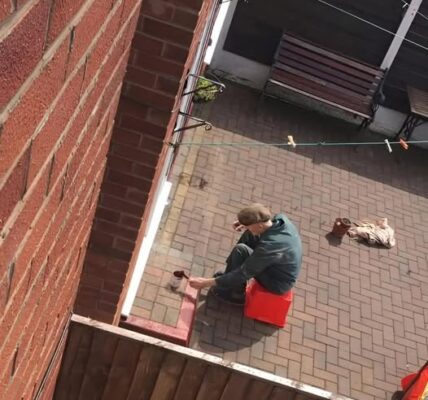The truck stop diner sat on the edge of the highway, a weary beacon for travelers and truckers alike. Its neon sign buzzed faintly against the fading daylight, advertising “Hot Coffee” and “Best Pie in Town.” Inside, the smell of grease and sugar clung to the air, mingling with the faint sound of an old jukebox in the corner. It was the kind of place where regulars knew the waitresses by name, and strangers could sit for a while without drawing too much attention.

That evening, an old man pushed through the door. His steps were slow, deliberate, but steady. He wore a faded jacket and boots that had traveled countless miles. His hair was gray, his face worn with the lines of long days and longer nights. He didn’t say much—didn’t need to. To anyone who looked, it was clear he was a truck driver. One of those men who’d lived half his life on the road, carrying loads from one state to another, moving through America one diner, one fuel stop, one lonely highway at a time.
The waitress, Marlene, offered him a warm smile as he slid into a corner booth. “Evening, hon. Usual?” she asked, though she didn’t really know his name.
He nodded, returning her smile with a tired one of his own. She brought him a plate of hot food, a slice of pie, and a tall glass of milk. For the first time all day, the old man could let his shoulders relax.
But peace rarely lasts long.
The bell above the door jingled, and in strode three bikers. Leather jackets creaked as they moved, tattoos crawling up their arms, boots striking the linoleum floor with heavy purpose. Their laughter was loud, the kind that dared the room to notice them. And the room did. Customers glanced up, some quickly looking back down at their meals, hoping to avoid attention.
The bikers scanned the diner. Their eyes landed on the old man—alone, quiet, minding his own business. Easy target.
The first biker strutted past his booth, smirk plastered across his face. Without a word, he leaned down and pressed the burning end of his cigarette right into the old man’s slice of pie. The sweet dessert hissed under the heat, smoke curling upward. The biker chuckled and swaggered off to the counter.
The second biker followed close behind. He grabbed the old man’s glass of milk, swirled it slowly, then spat into it before setting it back down. He sneered, watching for a reaction.
The third biker didn’t hesitate either. He walked up, reached for the plate of food, and with a flick of his wrist, turned it over—sending dinner spilling across the table and onto the floor. Then he, too, joined the others at the counter, laughing loudly at their little performance.
The diner went quiet. Forks froze midway to mouths. All eyes turned toward the old man. Surely, now, he would react—shout, swing, protest. But he didn’t.
The old man sat in silence, his face unreadable. Slowly, he reached into his pocket, pulled out a few crumpled bills, and placed them neatly on the table. Then he stood, pushed in his chair, and walked to the door. His boots made no sound against the floor. He didn’t look at the bikers. He didn’t look at anyone. He just stepped out into the night.
The bikers roared with laughter, slapping each other on the back. “Not much of a man, was he?” one of them said, loud enough for the room to hear.
Marlene, the waitress, had been watching the whole time. She walked over to the counter, coffee pot in hand, and looked each of them in the eye before answering. Her voice was calm, steady.
“Not much of a truck driver either,” she said. “He just backed his big rig over three motorcycles.”
For a moment, silence fell heavy in the diner. Then chairs scraped against the floor as the bikers bolted for the door, their boots pounding like thunder. Outside, their laughter had vanished, replaced by the sound of shouting and disbelief. Where three gleaming motorcycles had once stood in a neat row, there was now nothing but twisted wreckage—chrome bent, paint scratched, wheels flattened beneath the crushing weight of eighteen wheels.
Inside, Marlene poured another cup of coffee for a customer who was trying not to smile too hard. The jukebox hummed on, filling the room once more with its familiar tune. The other diners picked up their forks again, as if nothing had happened.
Somewhere down the highway, taillights disappeared into the dark. The old man was already gone, heading for his next stop. He hadn’t raised his voice. He hadn’t lifted a fist. But he’d left his mark.
And everyone in that diner knew one thing for certain: the quietest man in the room is sometimes the one you should never underestimate.
